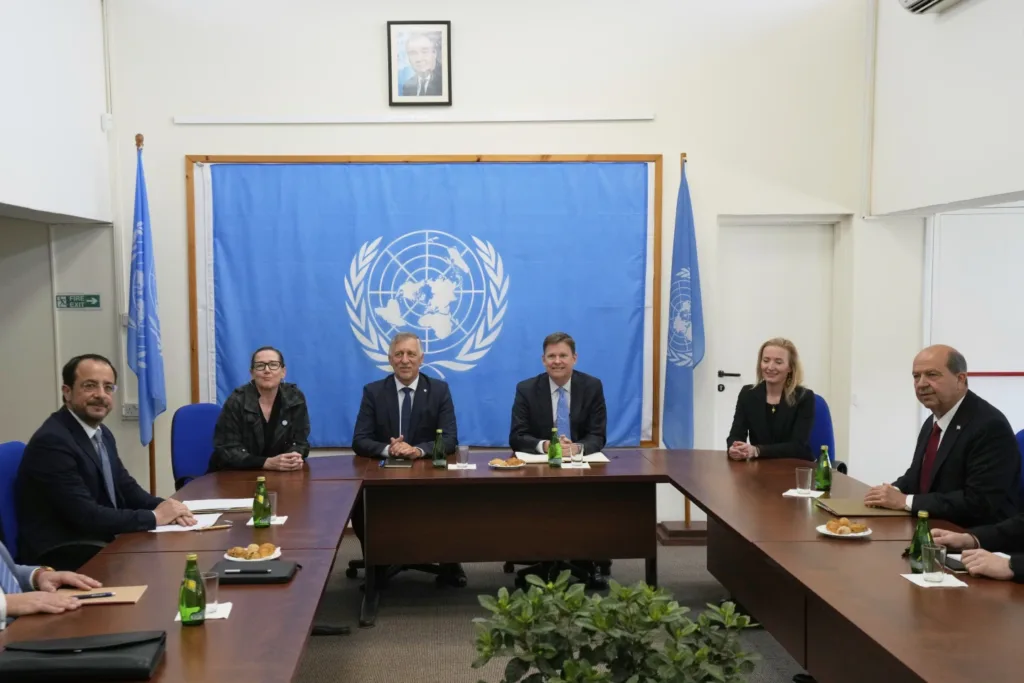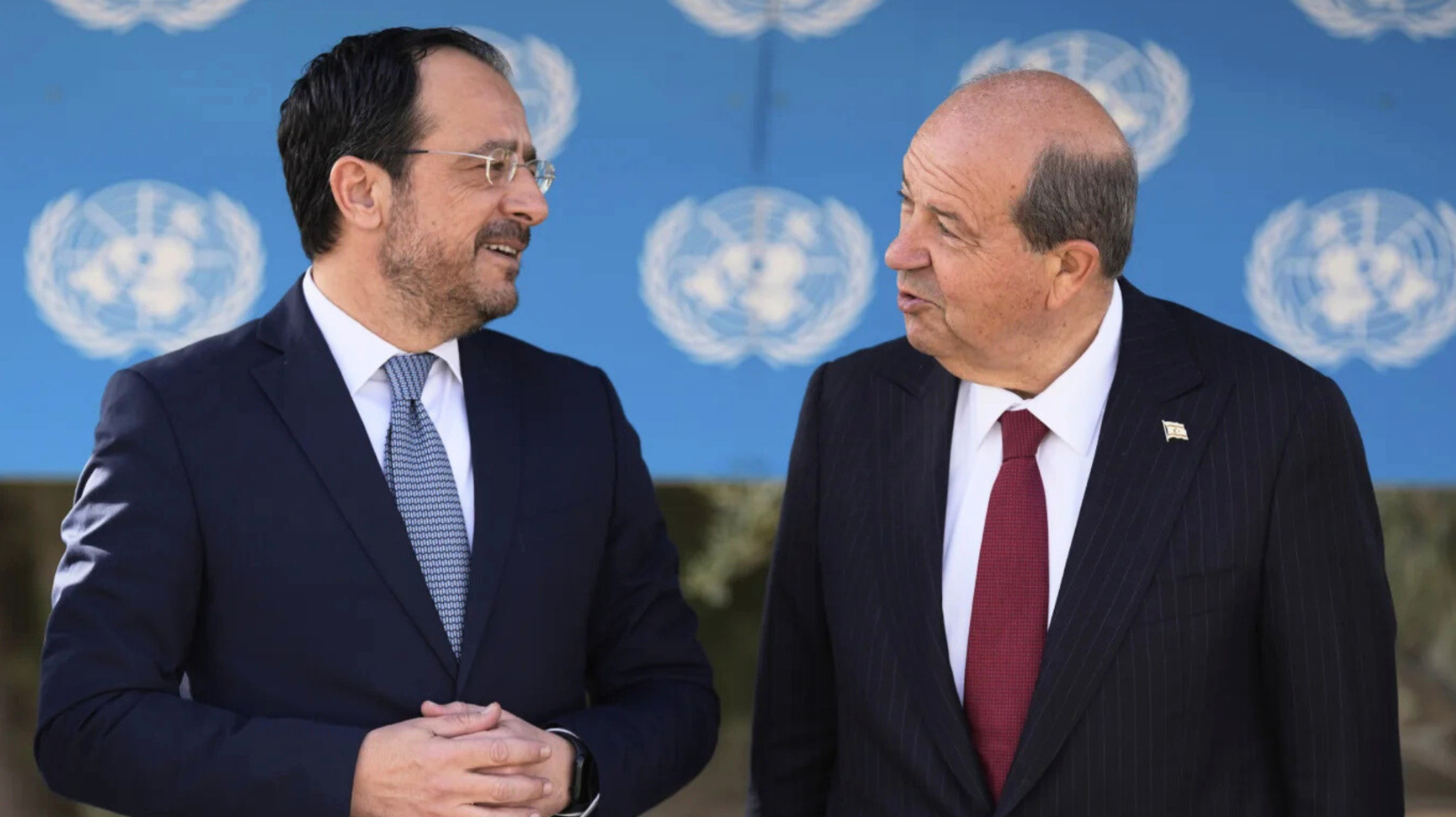Greek Cypriot President Nikos Christodoulides and Turkish Cypriot leader Ersin Tatar, made some progress on Wednesday, April 2, in fostering trust between their divided communities, agreeing to address issues like minefields and collaborating on environmental initiatives.
They also pledged to restore neglected cemeteries and create a joint group of young people from both sides to discuss relevant issues.
However, significant hurdles remain in formally restarting peace talks, with both leaders acknowledging the ongoing divide over the type of peace agreement each side envisions.
The meeting, hosted by the United Nations, echoed commitments made in a previous meeting with UN Secretary-General Antonio Guterres, who will appoint an envoy to help resume stalled peace negotiations.

Cyprus has been divided since 1974, when Turkey invaded the northern part of the island following a failed coup by pro-Greece factions.
While the Greek Cypriot south enjoys full European Union membership, only Turkey recognises the Turkish Cypriot declaration of independence.
Despite some positive steps, no agreement was reached on two key initiatives: building solar energy parks in the UN-administered buffer zone or expanding the nine existing crossing points between the two sides.
Tatar expressed hope for future progress, saying, “What is important is to exchange and be positive so that we can achieve things together.”
The leaders’ comments highlighted the deep divide in their visions for a peace settlement.
While Tatar and Turkey advocate for a two-state solution, Greek Cypriots reject any deal that would entrench the island’s division, in line with long-standing UN resolutions supporting a federated model.
Additionally, they oppose a permanent Turkish military presence or Turkish Cypriot veto power in any federal government structure.
The leaders agreed to meet again later this month as they continue efforts to bridge their differences.
Source: AP News.
